FULL HASS (Geography, History, Economics, Civics) Curriculum: 40 Lesson Plans + 4 Summative Assessments + Worksheet Suggestions (Year 7)

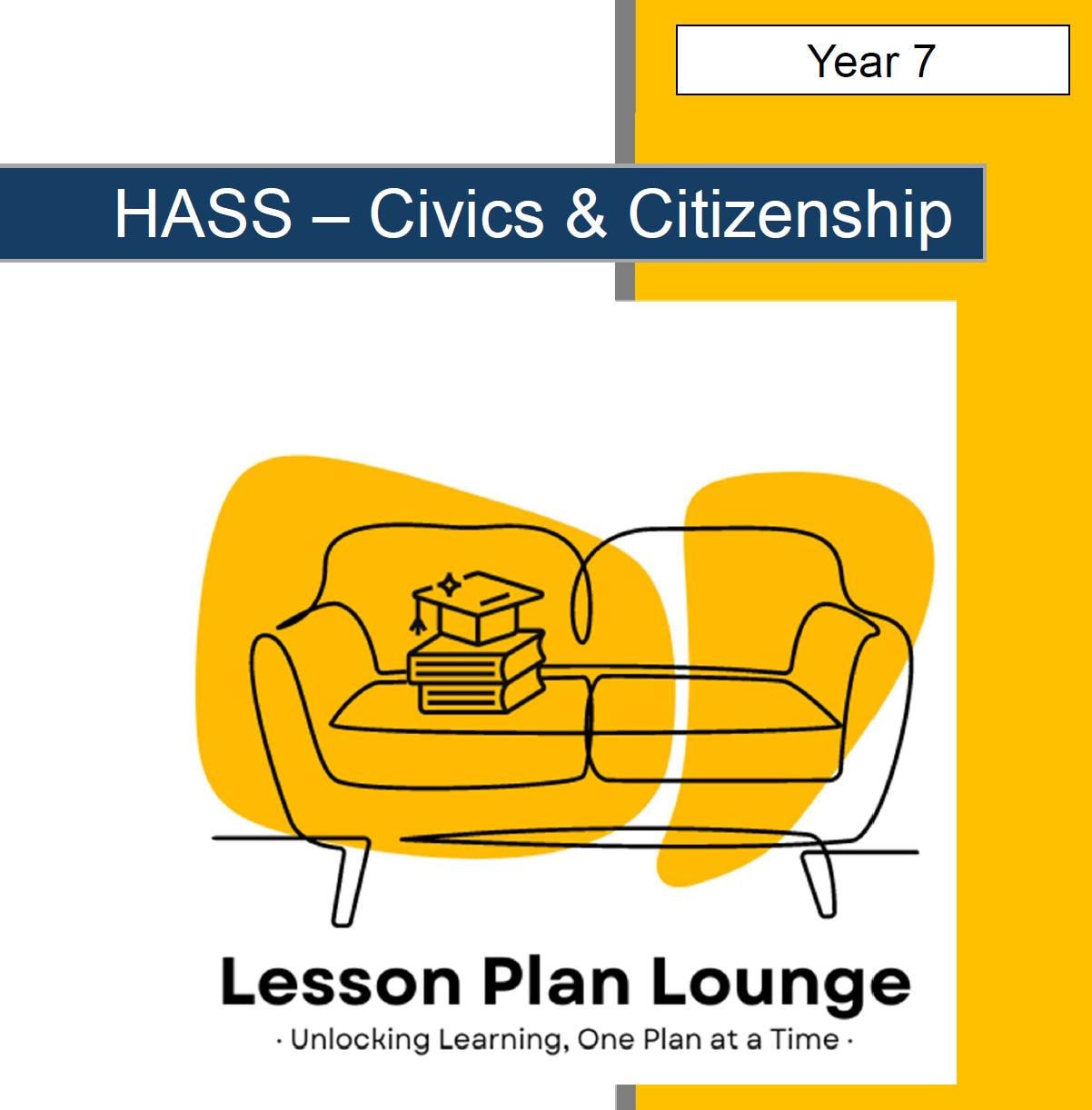
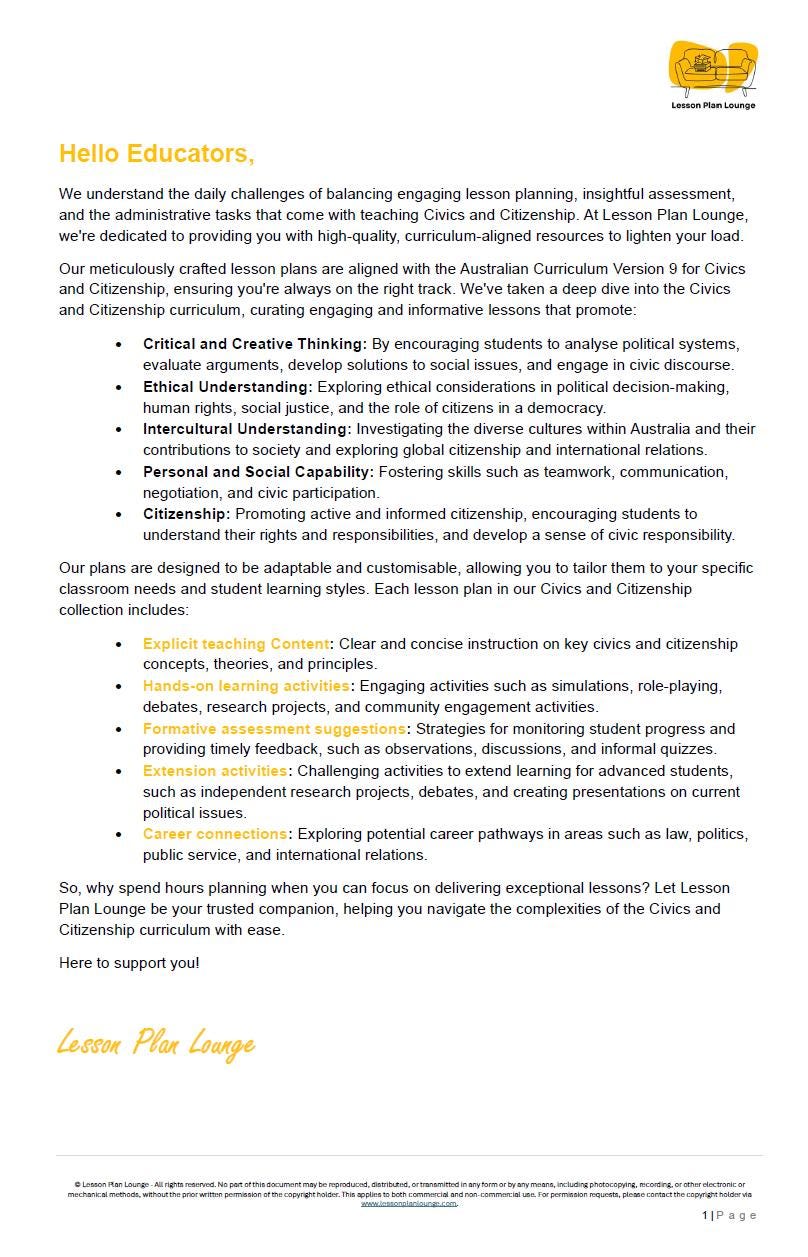
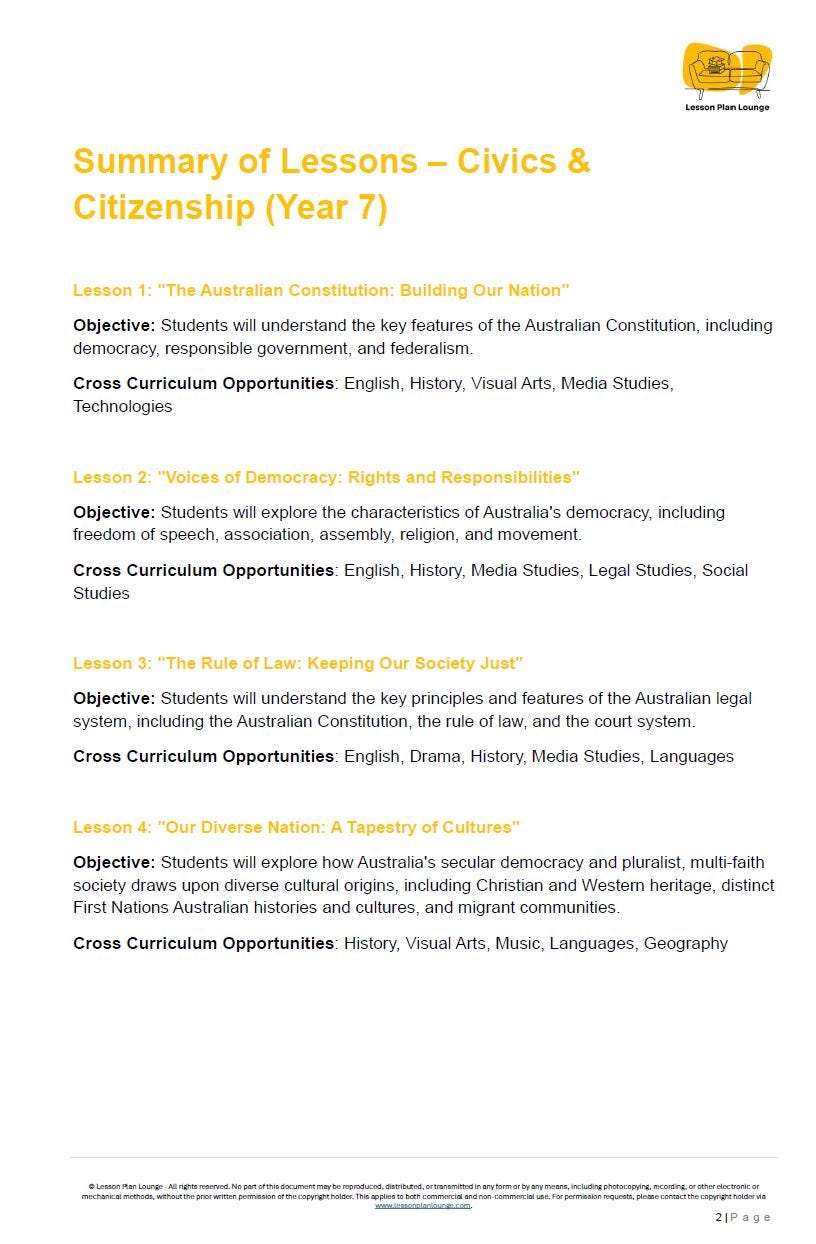
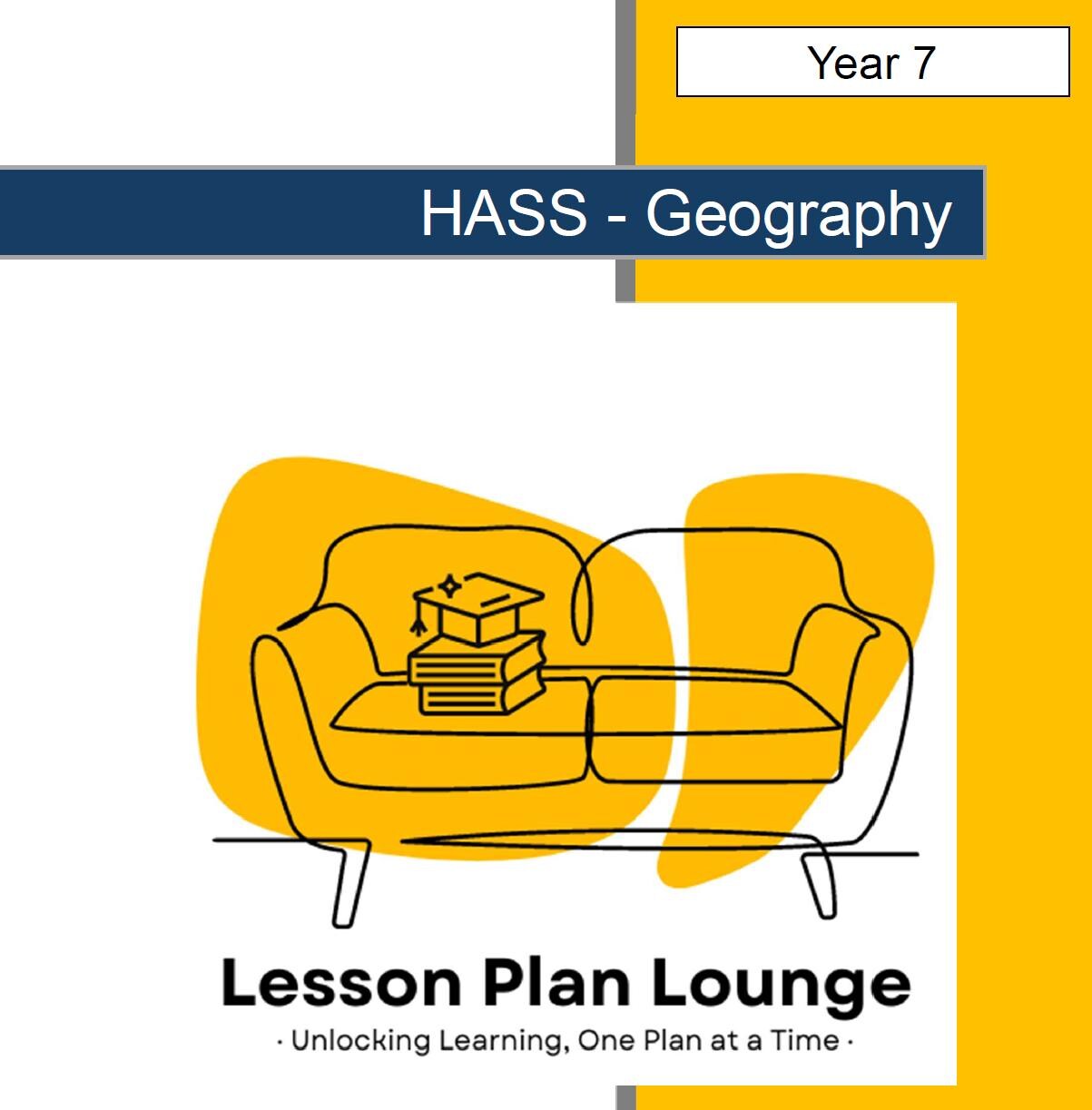
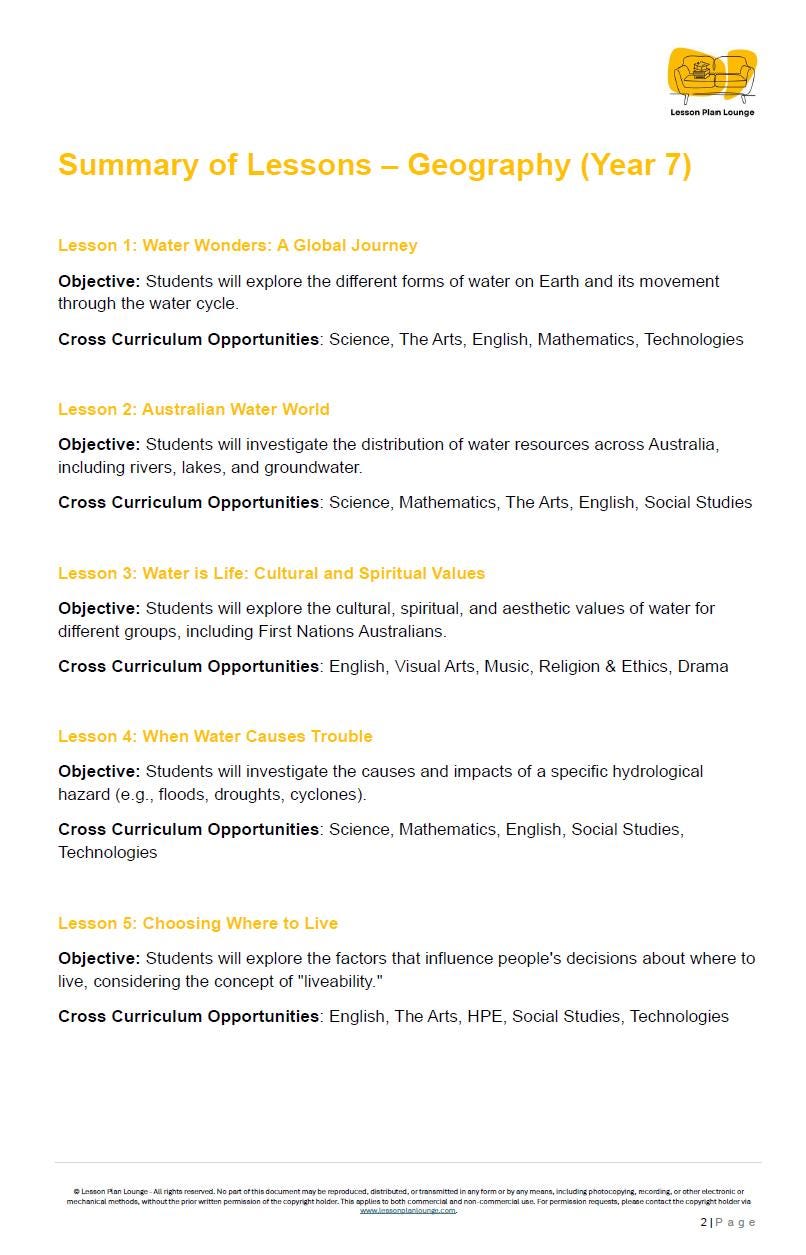
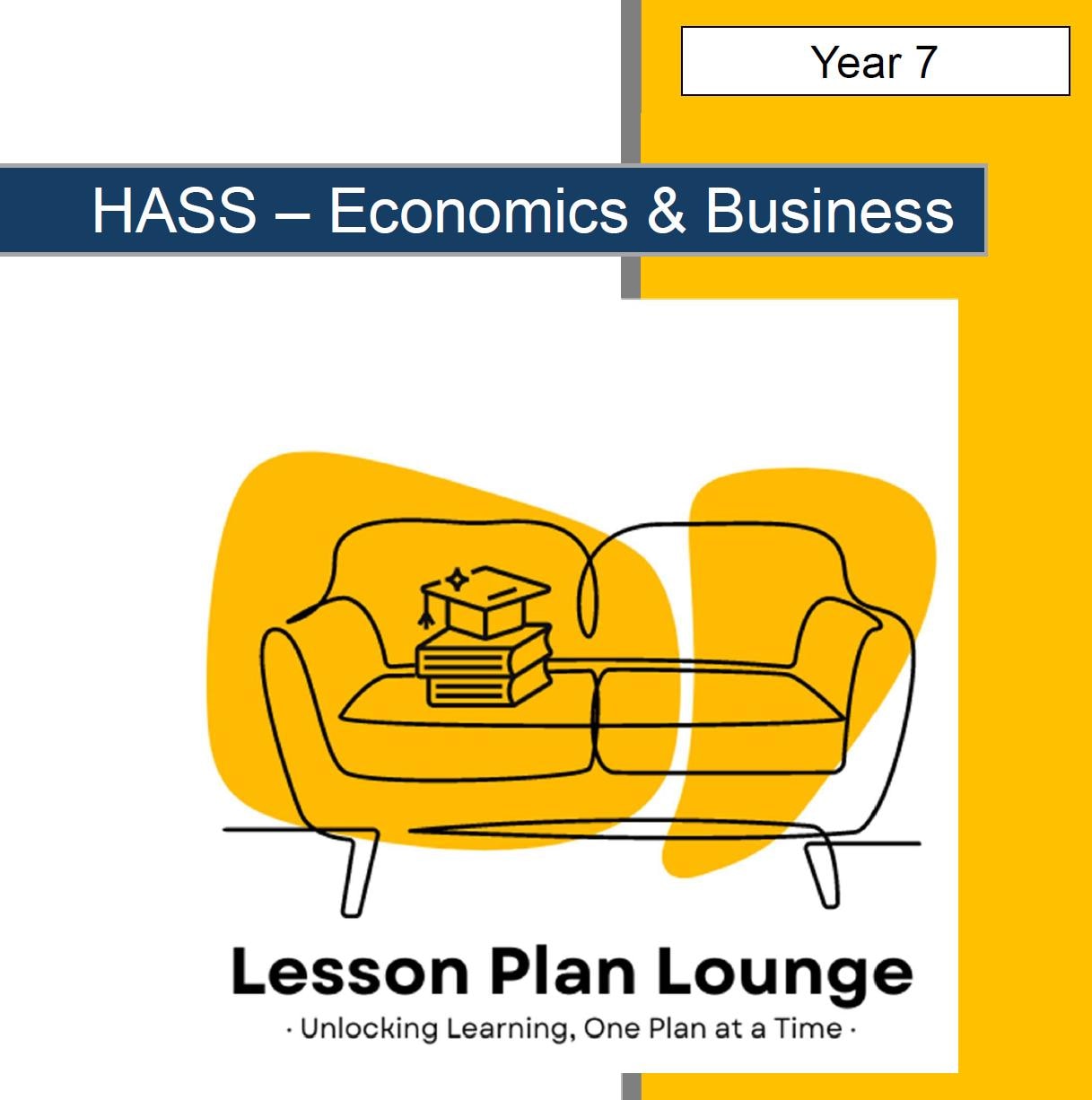
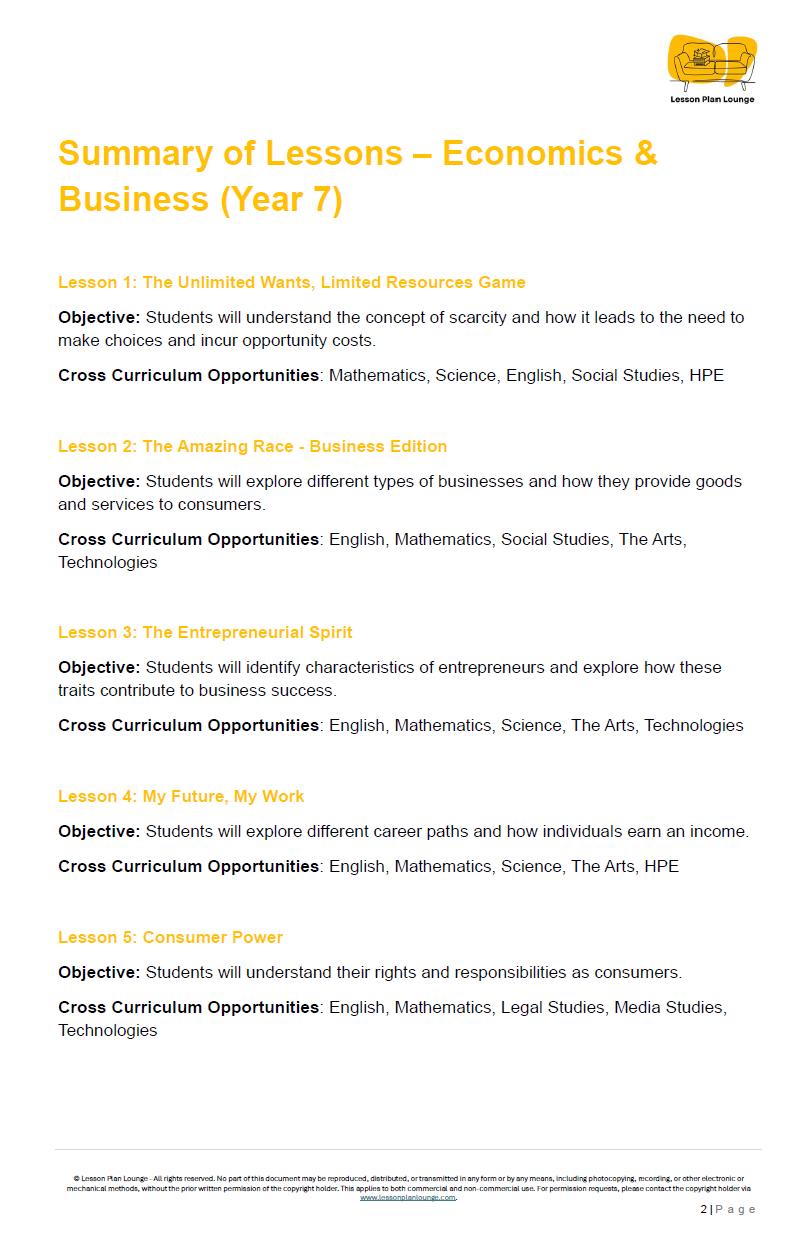
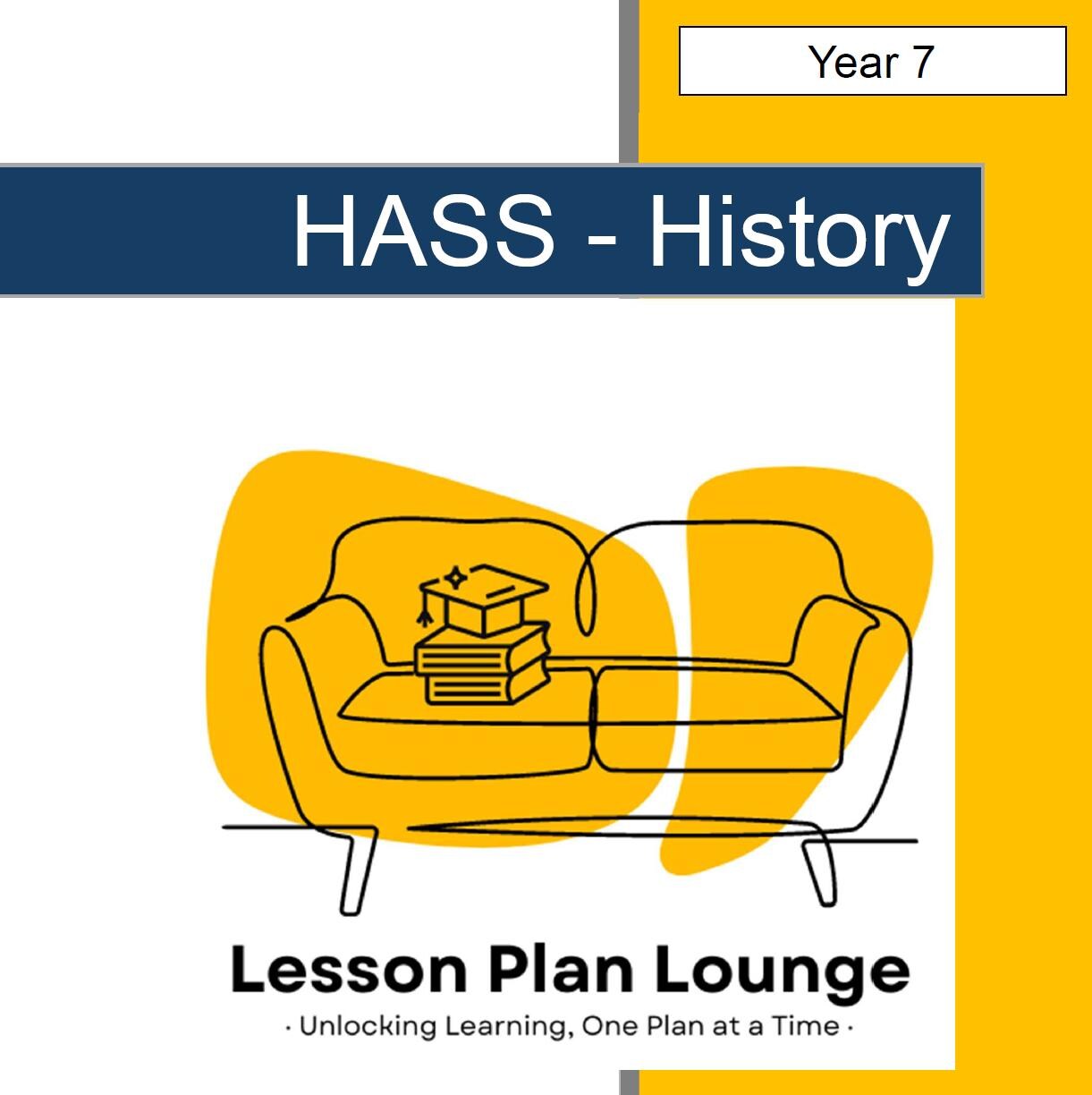
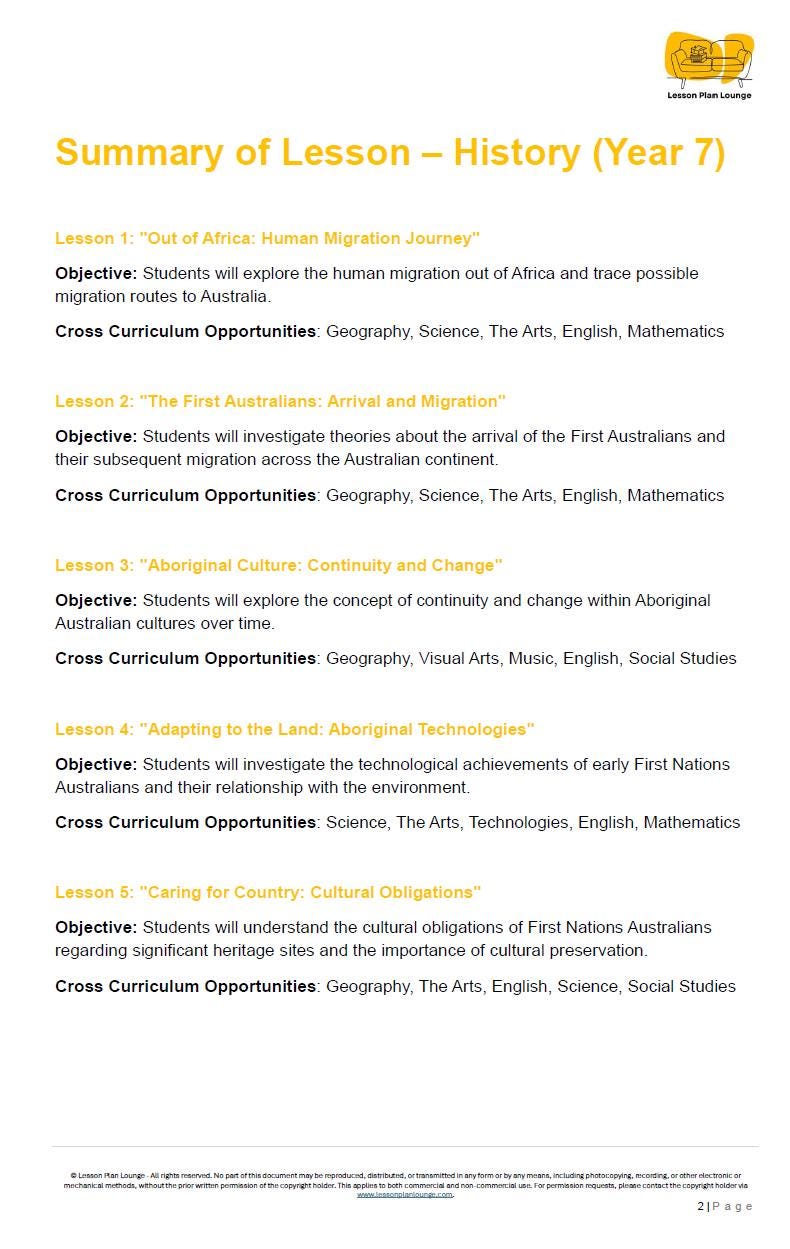
$16.42
FULL HASS (Geography, History, Economics, Civics) Curriculum: 40 Lesson Plans + 4 Summative Assessments + Worksheet Suggestions (Year 7)
Covering ALL the Content Descriptors for History, Geography, Economics and Business, Civics and Citizenship - Year 7. Including all the Skills Based Content Descriptors. (Australian Curriculum - Version 9)
Each Lesson Plan offers: Cross Curriculum Opportunities, Explicit Teaching Content, Hands-On Learning Tasks, Assessment Options, Differentiation Strategies, Extension Tasks, Career Education Options, Materials needed.
Also included for each Unit: Summative Assessment Task and Worksheet Suggestions for each lesson.
These 40 Lesson Plans cover ALL the required content for HASS - Year 7.
------------------
Content Descriptors Covered:
Geography:
AC9HG7K01 - classification of environmental resources and the way that water connects and changes places as it moves through environments.
AC9HG7K02 - the location and distribution of water resources in Australia, their implications, and strategies to manage the sustainability of water.
AC9HG7K03 - the economic, cultural, spiritual and aesthetic value of water for people, including First Nations Australians.
AC9HG7K04 - the causes and impacts of an atmospheric or hydrological hazard, and
responses from communities and governments.
AC9HG7K05 - factors that influence the decisions people make about where to live,
including perceptions of the liveability of places and the influence of environmental quality
AC9HG7K06 - the location and distribution of services and facilities, and implications
for liveability of places.
AC9HG7K07 - the cultural connectedness of people to places and how this influences their identity, sense of belonging and perceptions of a place, in particular the cultural
connectedness of First Nations Australians to Country/Place.
History
AC9HH7K01 - theories and historical interpretations about early human evolution and
migration, such as the theory that people moved out of Africa and the causes of migration to other parts of the world, including Australia.
AC9HH7K02 - theories about the causes and effects of the arrival of early First Nations Australians on the Australian continent and their migration routes across the continent.
AC9HH7K03 - how First Nations Australians are the world’s oldest continuing cultures,
displaying evidence of both continuity and change over deep time.
AC9HH7K04 - how First Nations Australians have responded to environmental processes and changes over time.
AC9HH7K05 - the technological achievements of early First Nations Australians, and how these developed in different places and contributed to daily life, and land and water source management.
AC9HH7K06 - the social organisation and cultural practices of early First Nations
Australians, and their continuity and change over time.
AC9HH7K07 - the cultural obligations of First Nations Australians about significant heritage sites, including ancestral remains, material culture and artefacts, and the role of collaboration between First Nations Australians and other individuals and groups to ensure cultural preservation.
AC9HH7K08 - the different methods and sources of evidence used by historians and
archaeologists to investigate early societies, and the importance of archaeology and
conserving the remains, material culture and heritage of the past.
AC9HH7K09 - how the physical environment and geographical features influenced the development of the ancient society.
AC9HH7K10 - the organisation and roles of key groups in ancient society such as the
nobility, bureaucracy, women and slaves, and how they influenced and changed society
AC9HH7K11 - key beliefs, values and practices of an ancient society, with a particular
emphasis on one of the following areas: everyday life, warfare, or death and funerary
customs.
AC9HH7K12 - causes and effects of contacts and conflicts within ancient societies and/or with other societies, resulting in developments such as the conquest of other lands, the expansion of trade and peace treaties.
Economics and Business
AC9HE7K01 - why opportunity cost exists as decisions are made to allocate
limited resources to meet unlimited needs and wants.
AC9HE7K02 - the reasons businesses exist and how different types of
businesses provide goods and services.
AC9HE7K03 - characteristics of entrepreneurs and how these influence the success of a business.
AC9HE7K04 - the reasons individuals work, the types of work they are involved in, and how they may derive an income.
AC9HE7K05 - the rights and responsibilities of individuals and businesses in relation to consumer and financial products and services.
Civics and Citizenship
AC9HC7K01 - the key features of Australia's system of government, including democracy, the Australian Constitution, responsible government and federalism.
AC9HC7K02 - the characteristics of Australia's democracy, including freedom of speech, association, assembly, religion and movement.
AC9HC7K03 - the key principles and features of the Australian legal system, including the Australian Constitution, the rule of law and the court system.
AC9HC7K04 - how Australia’s secular democracy and pluralist, multi-faith society draws upon diverse cultural origins, including Christian and Western heritage, distinct First Nations
AC9HC7K05 - how values based on freedom, respect, fairness and equality of opportunity can support social cohesion and democracy within Australian society.
+ All Skills Based Content Descriptors as required for the HASS Curriculum.
